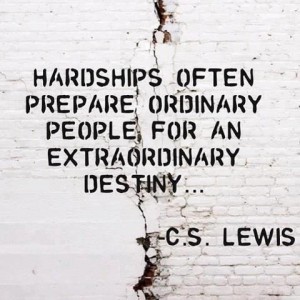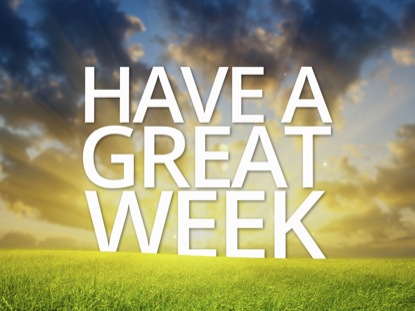Terri
Guillemets said, “A nurse will always give us hope, an angel with a
stethoscope.” I believe in
making a difference not only in my patient’s lives but in my Sailor’s lives as
well. I am a new graduate nurse; I
graduated from Radford University in May 2016.
I have been a nurse for almost a year (how time flies!) I absolutely love my job and it is evident every day I show up
to work. I work at a Naval Hospital in Washington State and I
love being a nurse on the Multi-Service Ward. I take such pleasure
serving those who have served our country. Their dependents are so grateful
to be at our hospital. It is an amazing feeling when you can set a
positive milieu for the rest of your shift.

It can be overwhelming knowing that you can
have such a positive impact on those around you. Whether you know it or not people are always
looking at you. In the military, they
say we are in a fish bowl and that someone is always looking so we must
be acting professionally at all times. The
junior Sailors are asking me to be their mentors and the senior Sailors are
ensuring I am on the right track for success. Becoming someone’s mentor is a
huge undertaking. I am guiding these
young paraprofessionals who want to become nurses and doctors; helping them pick
colleges and teaching them how to speak to their school advisers. I am helping them diffuse difficult situations
and teaching them how to cope with the stress of being an adult away from home
for the first time (which is crucial for these millennials!) It is an absolute honor to be held in such
high regards.
My mentor when I was in high school just passed away last week. He was my Junior ROTC instructor. It is unbearable to think of him being gone. It hurts so much knowing that when I go home on leave I won't be able to hear his voice, I'll be visiting his gravestone. To have such an impact on someones life is amazing. He guided me the way I am guiding my Sailors. I learned how to do that because of him, he will always be a part of me.

My mentor when I was in high school just passed away last week. He was my Junior ROTC instructor. It is unbearable to think of him being gone. It hurts so much knowing that when I go home on leave I won't be able to hear his voice, I'll be visiting his gravestone. To have such an impact on someones life is amazing. He guided me the way I am guiding my Sailors. I learned how to do that because of him, he will always be a part of me.

I am lucky enough to have been able to find my
“why” while taking this course. By knowing my why, I will be able to motivate
others just by leading my healthy and motivated lifestyle. People will want to
emulate me. My why is to be the very best I can be, to gather others and
take them with me. I want to inspire others and change lives. I
know that I already do that for many of the enlisted personnel and the junior
officers. As a leader, I will help others learn their why as well. It can make life a lot more fulfilling. I just want to let you know that I enjoyed Simon
Sinek so much I purchased all his books! 😊


Everything happens for a reason. I have always
said this. Especially when I look back at my career. I never wanted
to go into the healthcare profession but when it came time to go to the
recruiter’s office I did not have any other choice. I wanted to be a
pilot but after doing the medical exams they said my eyesight was not good enough.
I sulked for a while but I had to get back up and figure out what to do with my
life. So, I kept my head up and took a
leap of faith. I learned that if you fail you need to get back up and keep
going because everything happens for a reason.


When I found out I was pregnant in Guam I
tried getting out of the Navy before my contract was up; I did not want to move
my family around every 3 years. I did not want to raise “military brats”. The Commanding Officer denied my early out
request. This is another example where everything happens for a
reason. Shortly after that I applied for two officer programs to become a
nurse. If I was going to stay in, I
might as well go big! I was selected for
Medical Enlisted Commissioning Program and the Navy paid me to become a nurse
while using my GI Bill. I could not be
happier. I have met some amazing military brats since then and they seem
to grow up more outgoing other kids, so I am ok staying in the Navy as a
“lifer” now. Being prior enlisted gives
me the knowledge and respect needed in a leader.


Nursing is always changing. “Change cannot be avoided because it
is everywhere, but we can influence its circumstances and consequences” (Porter-O’Grady & Malloch, 2015, p.7).
As nurses, we need to be adaptable since this profession is a revolving door. The change can be something simple and the
beauty is that anyone can make a change.
Jeremy Gutsche said, "Make change happen even if it seems hard." The easy way is not always the best way. Sidney Dekker said
that "even the smallest cause can create the biggest effect" which
resonates with me (2013). Just because we do something that seems small
it could make a huge difference. We have bulletin boards at work and they
were filled with information for us, the staff. I changed all of them so
they would display patient education such as: smoking cessation, diabetes,
heart health, healthy foods, mammograms, colonoscopies and so on. I
did not think it was that big of a change but my boss said that many people,
whether they are patients or hospital workers, stop to read those boards.
When he compliments me on my hard work I tend to laugh rather than reply
with “thank you” and he made that known the other day. I am not sure why I have a hard time taking
compliments but at least it makes me humble and not overly confident.



Sidney Dekker talked about accountability. Normally if an error occurs we want to hold those people accountable, it is a natural feeling. He talks about how "we need to keep accountability and education together to try and solve the gap in the system rather than place blame on someone" (Dekker, 2013). At work, we have Patient Safety Report’s (PSR) that we submit if there was a medical error, if a patient was injured or if there was a near miss. This is a great way for people to come forward and talk about these instances in a safe environment because they are anonymous. As a leader, it is a great way to make changes to prevent those mistakes from happening again.

As an
emerging leader, I now understand that evidence based practice is the
foundation of our practice. Porter-O'Grady
said that "Evidence based practice (EBP) is the floor, innovation is
the ceiling" and that "EBP strangles new ideas" (AONE Thought Leader: Tim Porter O'Grady). I completely understand what Porter-O'Grady is talking
about because nursing is driven by EBP, and even though you may have a great
idea it could be superfluous because if it has not been researched it is hard
to make a change. I recently did some
research of my own after realizing that our hospital uses regular red caps for
our piggy back IV hubs. I researched the
effectiveness of alcohol impregnated IV caps.
I spoke with the hospitals infection control representative and she
mentioned that we had one case of documented infection related to that. When I approached it with my department head
he immediately made the changes. The
sense of feeling valued makes work much more fulfilling.


When
assuming a leadership role, it is assumed that there will be conflict. That is inevitable. Knowing how to deal with conflict is the key
and that can be very difficult to do. We
do not welcome conflict which is what Jeff Muir explains saying that we would
rather live in denial than solve the conflict (Conflict
Resolution, 2013). In the nursing profession if
conflicts are not resolved many nurses will just quit and not return to the
profession (Swearingen&
Liberman, 2004). Good communication needs to be a priority to improve
conflict resolution. As a leader, I will be open and listen intently
without judgement to help resolve any issues at hand. CrisMarie Campbell
and Susan Clarke mention on TEDtalks that we need to be vulnerable in order to
resolve it (2015). Brene Brown and our book say
the same thing that “vulnerability is not about weakness or incompetence”
(Porter-O’Grady & Malloch, 2015, p. 309). Brene Brown says that,
“vulnerability is our most accurate measurement of courage” (2011).


Knowing
that how you approach someone could become a domino effect for your staff could
make a huge difference. If you approach everyone with a positive
attitude it could spread, just as if you’re always negative, that can
spread as well and create a toxic environment.
I learned a couple years ago not to waste energy on things you have no
control over. This message changed my life. If someone were to cut
me off, what good will it do getting upset over it? It’s just wasted
energy. I’d rather spend my time being happy and joyful rather than angry
and bitter over things I have no control over.
Although if the environment is negative then I will either remove myself
from the situation or try to change the subject because it not only affects me
but all the other staff as well.
Joseph Grenny (2015) said that “The way you act is influenced by
how you feel.” He talks about the story we tell ourselves can completely
change how we think and respond to people. After listening to this talk I will
notice how I feel before reacting. Growing up, my parents always said,
“Think before you speak” which goes along the same lines. I am bad at
this, and in order to be a good leader I need to bite my tongue and mull things
over a bit before responding. He talks
about how most people need to choose between telling the truth and keeping a
friend. I’ve been in this predicament before and have always chosen to
tell the truth with the thought that, “If it were me, I would want to
know.” We are still friends. Most of my friends will describe me as
blunt and honest.
 The challenges I have faced throughout my life will guide me to be an exceptional leader. I will push people to see what they cannot and guide them like others have guided me. I believe I am a Digital Age leader. I am adaptable and flexible. When I was checking into this hospital I begged to be in Labor and Delivery but the Director of Nursing Services told me that because I was a new nurse I had to learn nursing skills on the Multi-Service Ward. After a little disappointment, I adapted and welcomed the experience with open arms. I am grateful for this opportunity because I absolutely love it (Porter-O'Grady & Malloch, 2015).
The challenges I have faced throughout my life will guide me to be an exceptional leader. I will push people to see what they cannot and guide them like others have guided me. I believe I am a Digital Age leader. I am adaptable and flexible. When I was checking into this hospital I begged to be in Labor and Delivery but the Director of Nursing Services told me that because I was a new nurse I had to learn nursing skills on the Multi-Service Ward. After a little disappointment, I adapted and welcomed the experience with open arms. I am grateful for this opportunity because I absolutely love it (Porter-O'Grady & Malloch, 2015).



In
conclusion, knowing that you cannot please everyone will make your job a little
easier. When I first got into
leadership, I tried my very hardest to please everyone. “Once you get
that it truly is impossible to please everyone, you being to live purposefully,
trying to please the right people” (Cloud, 2014). I finally realized that
I can’t and no one can. A huge weight was lifted off my shoulders. This class gave me so much insight with
leadership and knowing who I really am as a person and leader.
References
Brown, B. (2010, June). Retrieved
April 02, 2017, from https://www.ted.com/talks/brene_brown_on_vulnerability
Cloud, H. (2014, June 24). 10 Things Successful
People Never Do Again. Retrieved April 07, 2017, from
http://www.success.com/article/10-things-successful-people-never-do-again
Conflict Resolution. (2013). Retrieved March 12, 2017, from https://www.youtube.com/watch?v=KY5TWVz5ZDU
Grenny, J. (2015, September 10). Mastering the art of crucial conversations. Retrieved from https://www.youtube.com/watch?v=-56_auKiKfA.
Gutsche, J. (2017, January 18). Disruptive Innovation Keynote Speaker Jeremy Gutsche on Trends & Change. Retrieved April 15, 2017, from https://www.youtube.com/watch?v=J7B9xvzawmY&feature=youtu.be
Porter-O'Grady, T. & Malloch, K. (2015). Quantum leadership:
Building better partnerships for sustainable health (4th ed.).
Swearingen, S., & Liberman, A. (2004). Nursing generations: an expanded look at the emergence of conflict and its resolution. Health Care Manager, 23(1), 54-64.
Dekker, S. (2013, May 29). Just Culture.
Retrieved March 27, 2017, from https://www.youtube.com/watch?v=gKqYMpWZbV8















